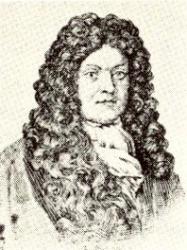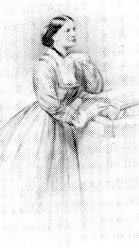1693 - 1759 Hymnal Number: 203 Author of "Rise, my soul, and stretch thy wings" in The Chapel Hymnal Robert Seagrave was born at Twyford, Leicestershire, in 1693. He studied at Clare Hall, Cambridge, graduating in 1718. In 1739, he was appointed Sunday Evening Lecturer at Lorimer's Hall, London. He afterwards preached in the Tabernacle, in connection with the Calvinistic Methodists. The date of his death is unknown. He published some treatises on doctrinal subjects, and on the duties of the ministry. In 1742, he published "Hymns for Christian Worship." His hymns have been published by Sedgwick (1860).
--Annotations of the Hymnal, Charles Hutchins, M.A., 1872.
====================================
Seagrave, Robert, M.A., son of Robert Seagrave, Vicar of Twyford, Leicestershire, was born at Twyford, Nov. 22, 1693, and educated at Clare College, Cambridge, where he graduated in 1714. Taking Holy Orders he entered most earnestly into the movement then being carried forward by the Wesleys and Whitefield; and between 1731 and 1746 he issued numerous letters and pamphlets, &c, designed to awaken in the clergy a deeper earnestness in their work. In 1739 he was appointed Sunday Evening Lecturer at Loriners' Hall, London, where he continued to preach till 1750. He also occupied Whitefield's Tabernacle from time to time. His hymns, which were better known and more highly appreciated by the older compilers than those in modern days, and will still repay perusal, were included in his collection, published by him for use at the Loriner's Hall, as Hymns for Christian Worship, partly composed, and partly collected from Various Authors, 1742. The 4th edition was published in 1748, and the originals were reprinted by D. Sedgwick as Seagrave's Hymns, in 1860. Two of these hymns are still in common use:—
1. Now may the Spirit's holy fire. Opening of a Place of Worship. This, from Hymns for Christian Worship, &c, 1742, was given by G. Whitefield as the opening hymn of his Hymns for Social Worship, &c, 1753. It was repeated in Toplady's Psalms & Hymns, 1776; and again in later collections to modern hymnbooks.
2. Rise, my soul, and stretch thy wings. Pilgrim's Song. Also from his Hymns, &c, 1742, into G. Whitefield's Hymns, &c, 1753; and again in others to modern hymn books.
--John Julian, Dictionary of Hymnology (1907)
Robert Seagrave


 My Starred Hymns
My Starred Hymns






